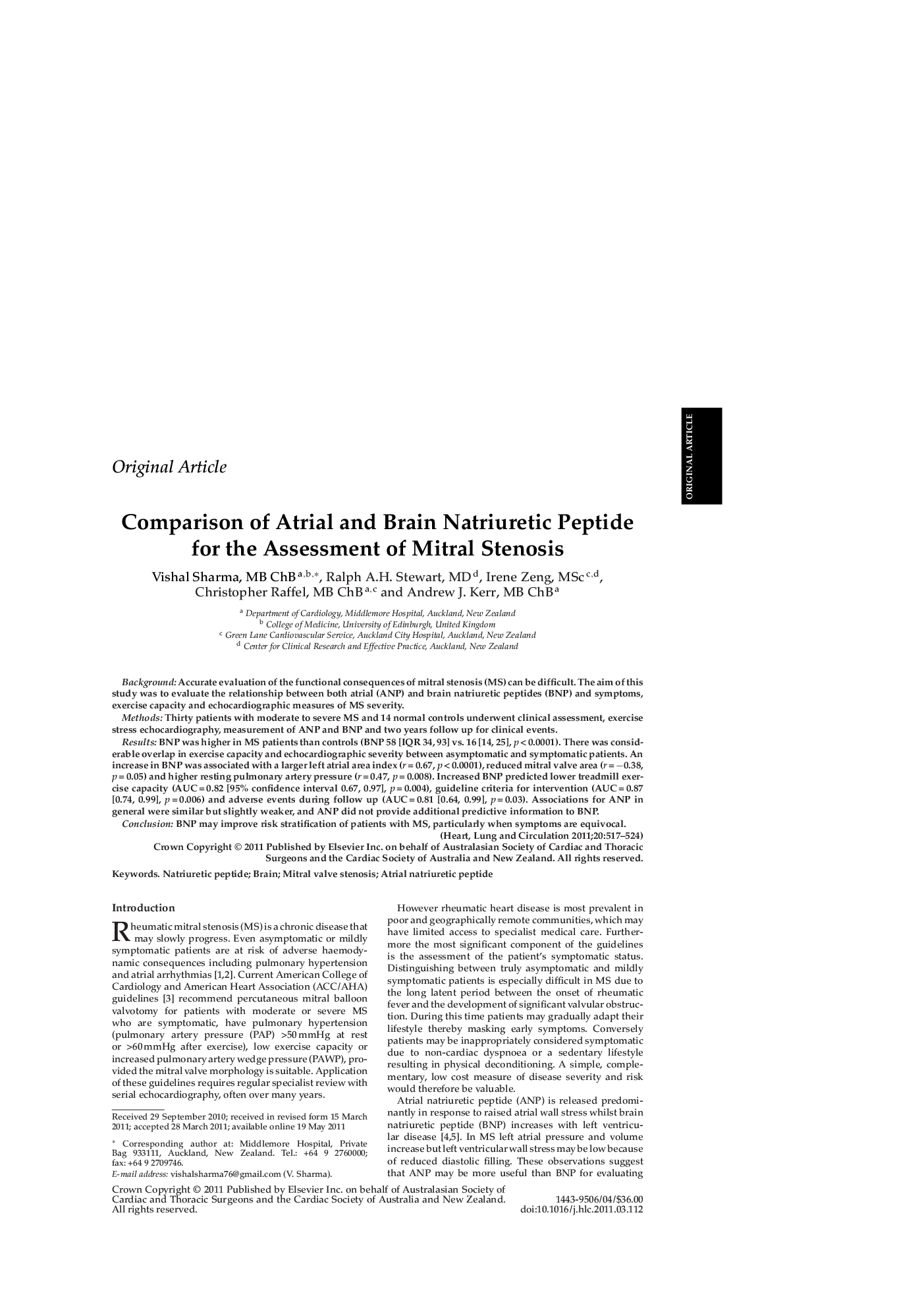| Article ID | Journal | Published Year | Pages | File Type |
|---|---|---|---|---|
| 2919292 | Heart, Lung and Circulation | 2011 | 8 Pages |
BackgroundAccurate evaluation of the functional consequences of mitral stenosis (MS) can be difficult. The aim of this study was to evaluate the relationship between both atrial (ANP) and brain natriuretic peptides (BNP) and symptoms, exercise capacity and echocardiographic measures of MS severity.MethodsThirty patients with moderate to severe MS and 14 normal controls underwent clinical assessment, exercise stress echocardiography, measurement of ANP and BNP and two years follow up for clinical events.ResultsBNP was higher in MS patients than controls (BNP 58 [IQR 34, 93] vs. 16 [14, 25], p < 0.0001). There was considerable overlap in exercise capacity and echocardiographic severity between asymptomatic and symptomatic patients. An increase in BNP was associated with a larger left atrial area index (r = 0.67, p < 0.0001), reduced mitral valve area (r = −0.38, p = 0.05) and higher resting pulmonary artery pressure (r = 0.47, p = 0.008). Increased BNP predicted lower treadmill exercise capacity (AUC = 0.82 [95% confidence interval 0.67, 0.97], p = 0.004), guideline criteria for intervention (AUC = 0.87 [0.74, 0.99], p = 0.006) and adverse events during follow up (AUC = 0.81 [0.64, 0.99], p = 0.03). Associations for ANP in general were similar but slightly weaker, and ANP did not provide additional predictive information to BNP.ConclusionBNP may improve risk stratification of patients with MS, particularly when symptoms are equivocal.
